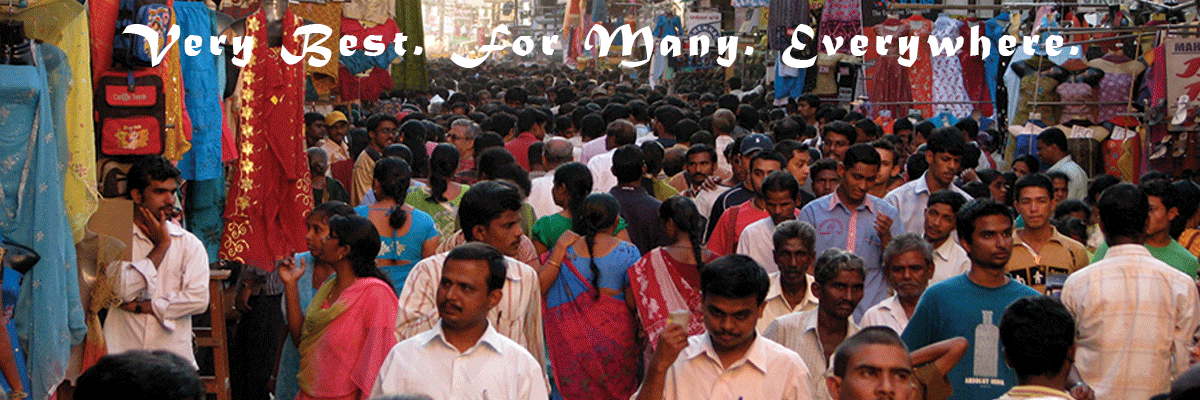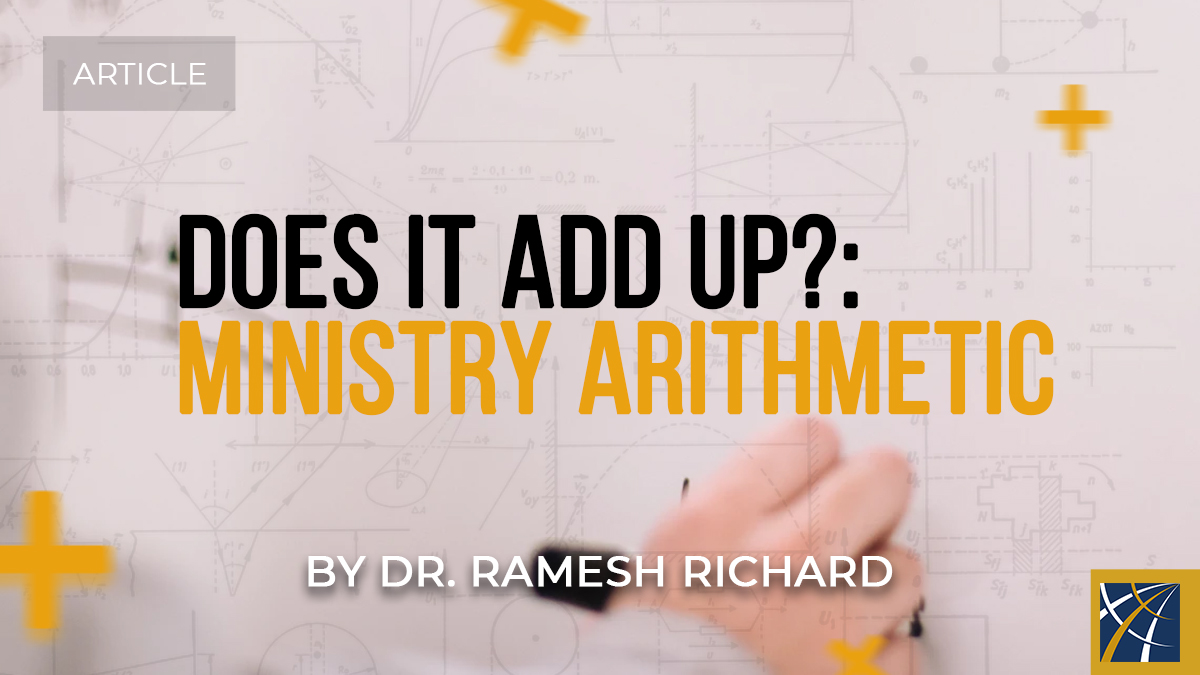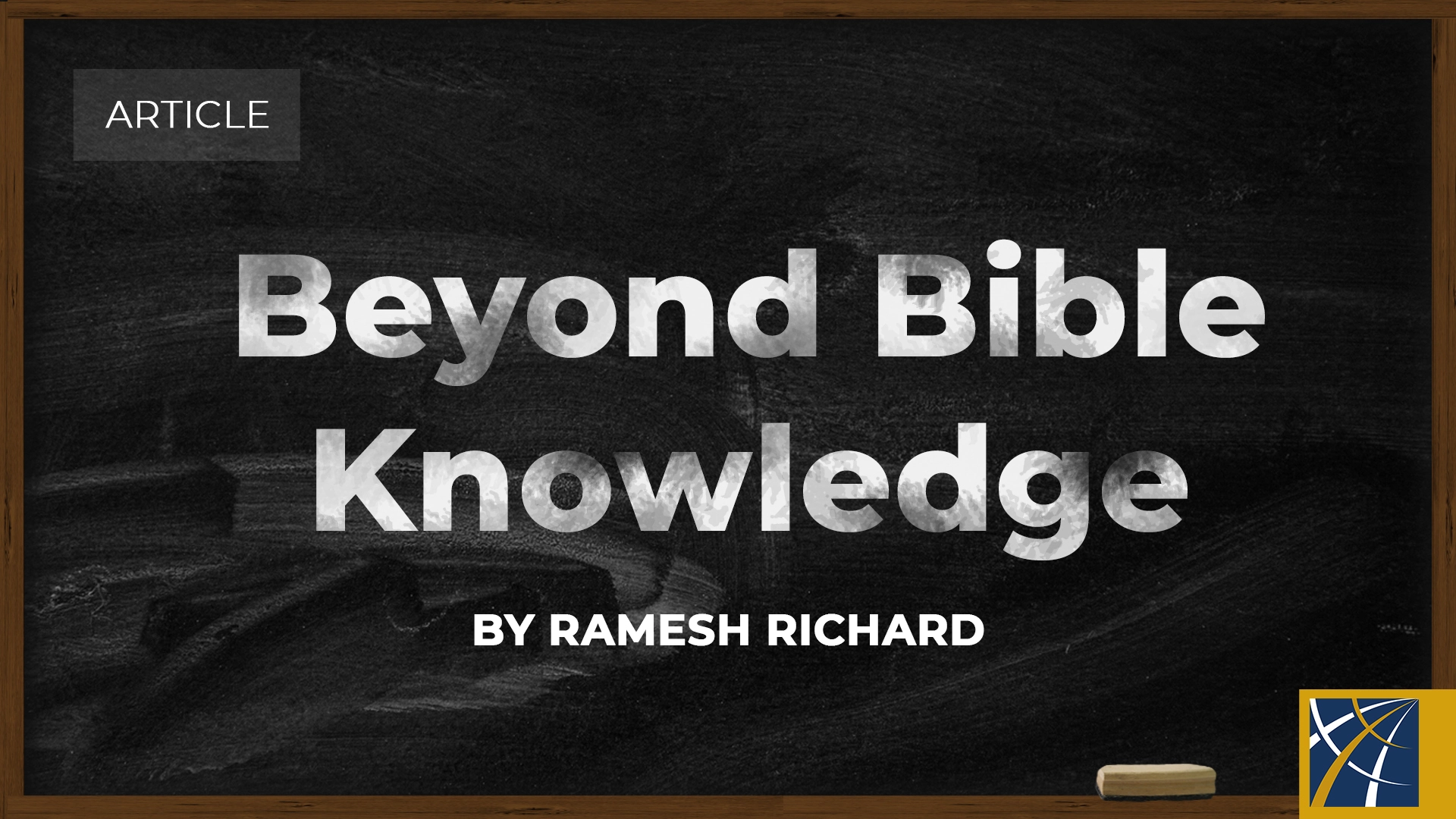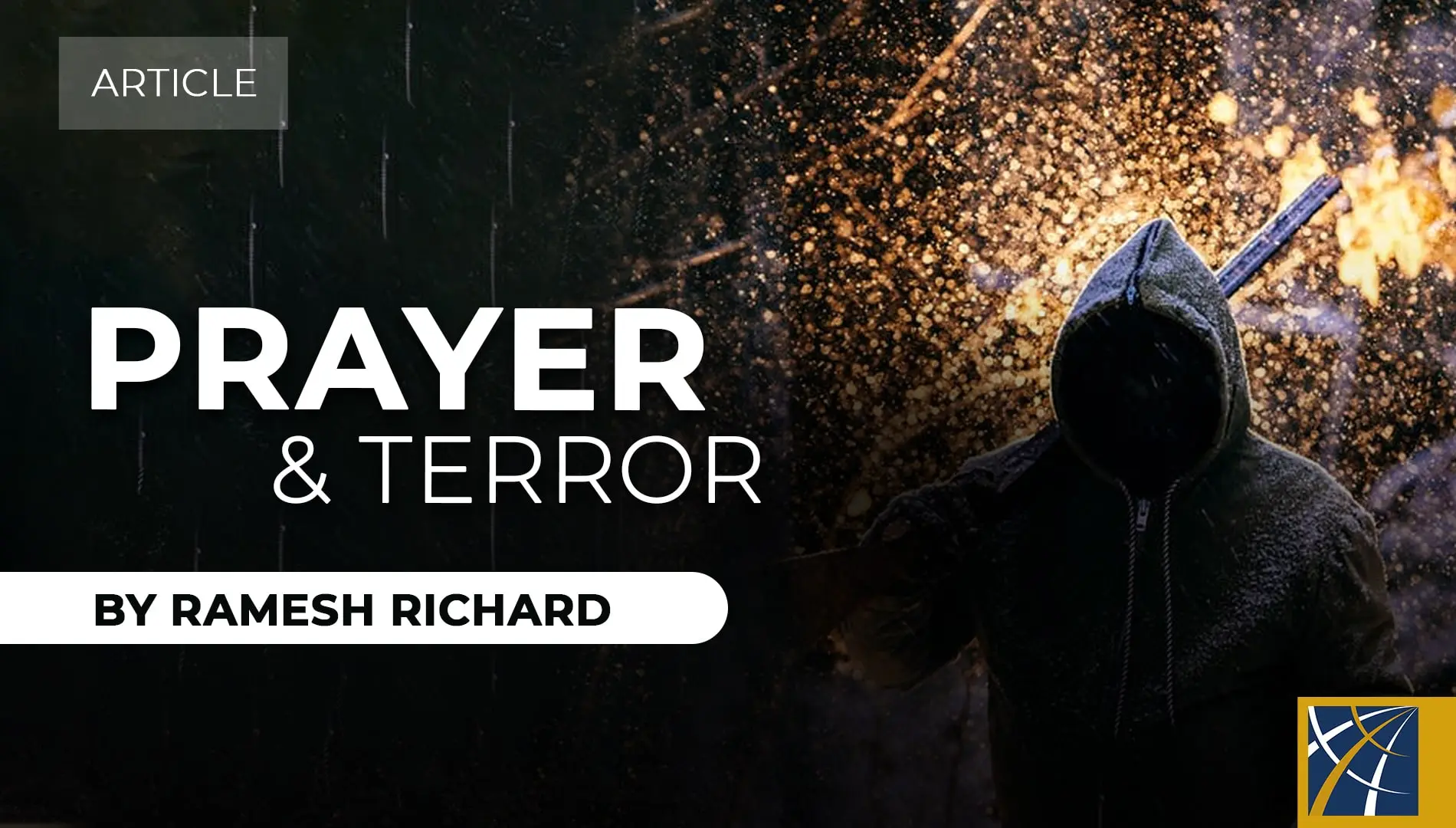The T. Nagar Market area pictured above is Chennai’s busiest. This packed scene is normal throughout most days.
Photo by McKay Savage from London, UK
[CC-BY-2.0 (http://creative commons.org/licenses/by/2.0)], via Wikimedia Commons
by Ramesh Richard
I could not write this foreword from a better place than the land of my birth and the cities of my early years and ministry: India, Chennai, Delhi. Large numbers of individuals overwhelm streets and shops while the reality of economic deprivation stands stark against the increasing global clout of this incredible, urbanizing country of energetic, creative, young people (576 million, nearly one-half the population, under 25).
This morning in Bangalore, I realized that people-rich situations intensify my convictions about the sovereignty of a personal God
- in His creating masses of people. If God loves individuals, He must love this land—and any land with many people—a whole lot.
- in the crushing circumstances in which the poor find themselves while the lifestyles of the wealthy in their opulent homes, fancy cars and spending habits continue to astound the observer.
- in His elective choice of any one at all for salvation and ministry.
I still fail to understand why He chose me to know Jesus and called me to ministry. I often wish He could have chosen me only for salvation and left out ministry responsibility. Then I could merely appeal to God’s sovereignty to comfort me and better explain my theological questions regarding the situational challenges of many a person, and He could release me from any responsibility to do anything good for anybody. For as always, I feel my lack of necessary resources to do much for the most people during my brief time on earth.
And yet, part of God’s sovereignty is the mystery of human inclusion to freely accomplish His purposes. If I may submit to the sovereignty of God to make myself more comfortable in this life, I must also consistently submit to His sovereignty to be more responsible for what, whom and where He has chosen to use me.
So RREACH’s new tagline has been carefully thought out and worded.
For the very best of many everywhere expresses our wholesome hope for the whole world. Please parse this slogan with me.
Everywhere means everywhere. While some locations receive strategic priority because of our own limitations, God’s missional scope includes all places. “All nations,” a phrase repeated throughout Scripture and especially in our Lord’s great commission, captures the global scope of our responsibility (Matt. 28:19; Luke 24:47).
Many stands for the obvious: many people. At Dallas Seminary, I recently preached on an obscure prophetic passage. I could not avoid the plainness of its emphasis on many. Daniel prophesies: “And MANY of those who sleep in the dust of the ground will awake, these to everlasting life, but the others to disgrace and everlasting contempt” (Dan. 12:2, capitals added). All will not receive eternal life, but many will.
For the very best: What might that phrase signify? Our world is polluted, corrupted and depraved. People groan everywhere. There is no systemic, permanent, large-scale solution possible, or humanity would have already solved its problems. Several socio-political models have been tried and found wanting. Some of them deny human depravity, and others seize human badness to build the social best out of a broken world.
Still, much good is being done by compassionate people in many places. For example, many save children, women and lives from evil, disease and disaster. Yet much good is not the same as the very best.
We begin with “doing good to all people, especially to the household of faith” (Gal. 6:10). And the huge human need around us keeps RREACH engaged in providing small amounts of social, physical and economic relief, especially for pastors and their immediate families. But while the very best includes the much good, we don’t want to become simply another non-governmental organization like UNICEF or the Red Cross. The very best for many suggests a distinctly Christian interpretation of reality.
- The very best goes deep into the interior of life. Because of their welcoming of Jesus, hearts are changed and minds unleashed. I have met new believers among the poorest (and the highest) echelons of the social chain who are able to put up with devastating circumstances and live above their desperation because they have God’s very life in them. They are confident in their unchangeable value to Him. Since their circumstances are permitted by Him, they are content, but not passive. They correct the correctable, but do not complain about the unchangeable. So let’s do our very best for people by taking the Lord Jesus to them.
- The very best goes long into the future, into eternity. My dad turned 90 last month. While quite long (32,250 days), that span lacks comparison to forever. We shall do good to all people; indeed, we want their best. But if we want to do our very best for them, we must affect their lives into eternity.
Daniel pronounces a blessing on those who have insight and lead the MANY to righteousness. For that insightful leadership activity, they “will shine brightly like the brightness of the expanse of heaven, like the stars forever and ever” (Dan. 12:3).
How will many receive eternal life? The very best for now and forever? Become recipients of God’s life from here to eternity?
Let’s do our very best for the very best of many everywhere—let’s lead many to salvation.
If you would like to receive a copy of Dr. Richard’s chapel talk from Dallas Seminary on Daniel please feel free to request an audio version by clicking here, and we will send you a link or a CD).






